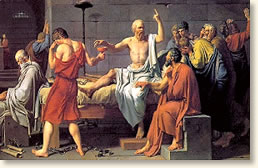How many JW's today know, in the 30's, membership cards attesting to 'ordained' status as ministers were carried by Brothers and Sisters when they went out in field service?
Each publisher and pioneer carried an identification card indicating his or her ministerial status and connection with the society. These membership cards were the Witnesses' only "official" link to the headquarters and were used to identify themselves to the public, the police, and government officials.
The Jehovah's Witnesses' identification cards read in part, "Jehovah's witnesses are ordained and commissioned by God, and the signer of this card Scripturally claims such ordination and commission, as set for this the Bible at Isaiah 43:9 12; Matt. 10:7-12; Matt. 24:14; Acts 20:20; 1 Peter
2:21; 1 Cor. 9:16. Being one of Jehovah's witnesses, in obedience to God's commandments, preach the gospel and worship almighty God by calling upon people in their homes, exhibiting to them the message of the gospel of said Kingdom in printed form." (67) Witnesses were instructed to show the card "to any policeman who arrests them," (68) thus establishing themselves as clergy immediately upon being taken into custody.
The plan for legally establishing identification for Witnesses as ordained clergy was implemented prior to Covington's tenure. Olin Moyle, Covington's predecessor, also used the identification cards as evidence of ministerial work. In Schneider v. New Jersey, Moyle wrote that Clara Schneider's work "consisted of visiting residents of Irvington, exhibiting to them her Testimony and Identification Card (R. 35-36) and leaving or offering to leave with them certain printed literature." (69)
Identification as a minister was important to the legal cases of Witnesses. Covington insured that whenever possible, these identification cards were introduced into evidence as proof of the appellant's religious status. For example, Covington began the facts section of his brief in Marsh v. Alabama by noting that "Grace Marsh is an ordained minister of Almighty God.... The Watchtower Bible and Tract Society, under the direction of which she carried forward her ministerial activities,
issued to her a certificate of ordination and identification." (70) "The Watchtower Society issues to its authorized agents, ordained ministers of Jehovah God, a certificate of identification and ordination (Exhibit 9, R 33)," Covington wrote in the Supreme Court brief for Largent v. Texas. (71)
Identification cards were used as the basis for two prominent legal arguments in Witness cases. First, the cards placed Witnesses squarely in the occupational category of clergy. Many of the community ordinances applied to specific vocations. By identifying themselves as ministers, Witnesses could be exempt from these regulations. Second, the identification cards issued by the Watchtower Bible and Tract Society allowed Witnesses to claim that the distribution of their literature was, in fact, worship.
